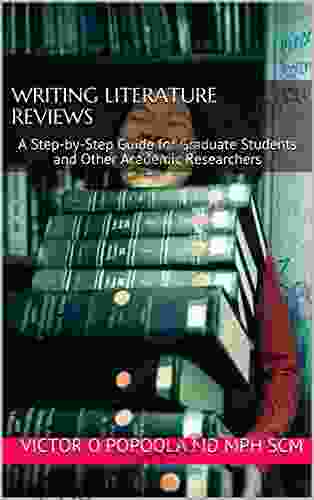A Comprehensive Guide to Conducting Effective Literature Reviews for Graduate Students and Academic Researchers

5 out of 5
| Language | : | English |
| File size | : | 3547 KB |
| Text-to-Speech | : | Enabled |
| Enhanced typesetting | : | Enabled |
| Word Wise | : | Enabled |
| Lending | : | Enabled |
| Print length | : | 37 pages |
| Screen Reader | : | Supported |
A literature review is a critical analysis of the existing body of research on a particular topic. It is an essential component of any graduate-level research project or academic paper. A well-written literature review demonstrates your knowledge of the field, helps you to identify gaps in the research, and provides a foundation for your own research.
Conducting a literature review can be a daunting task, but it is made easier by following a step-by-step process. This guide will provide you with all the information you need to conduct an effective literature review, from identifying and narrowing down your research topic to writing and formatting your final paper.
Step 1: Identify and Narrow Down Your Research Topic
The first step in conducting a literature review is to identify and narrow down your research topic. This can be a challenging task, but it is important to be as specific as possible. The more specific your topic, the easier it will be to find relevant research and write a focused paper.
Here are some tips for identifying and narrowing down your research topic:
- Start by brainstorming a list of topics that interest you.
- Once you have a list of topics, start to narrow them down by considering the following factors:
- Scope: Is the topic too broad or too narrow?
- Availability of research: Is there enough research available on the topic?
- Your interests: Are you passionate about the topic?
- Once you have identified a few potential topics, talk to your advisor or other experts in the field to get their feedback.
Step 2: Search for Literature
Once you have identified and narrowed down your research topic, the next step is to search for literature. There are a number of different ways to do this, including:
- Library databases: Library databases are a great place to start your search for literature. They provide access to a wide range of academic journals, books, and other resources.
- Google Scholar: Google Scholar is a search engine that specializes in academic research. It can be a helpful way to find articles that are not available through library databases.
- Other resources: There are a number of other resources that you can use to find literature, including conference proceedings, government reports, and industry publications.
When searching for literature, it is important to use keywords that are related to your research topic. You should also use Boolean operators (AND, OR, NOT) to narrow down your search results.
Step 3: Evaluate the Literature
Once you have found a number of articles that are relevant to your research topic, the next step is to evaluate them. This involves assessing the quality of the research, the relevance of the findings, and the overall contribution of the article to the field.
Here are some criteria that you can use to evaluate the literature:
- Methodology: Was the research conducted using sound methodology?
- Findings: Are the findings of the research valid and reliable?
- Contribution: Does the research make a significant contribution to the field?
Once you have evaluated the literature, you can start to organize it into different categories. This will help you to identify the main themes and arguments in the research.
Step 4: Write the Literature Review
The final step in conducting a literature review is to write the paper. The structure of your literature review will vary depending on the specific requirements of your assignment, but there are some general guidelines that you can follow.
Typically, a literature review will include the following sections:
- : This section provides an overview of the research topic and
5 out of 5
| Language | : | English |
| File size | : | 3547 KB |
| Text-to-Speech | : | Enabled |
| Enhanced typesetting | : | Enabled |
| Word Wise | : | Enabled |
| Lending | : | Enabled |
| Print length | : | 37 pages |
| Screen Reader | : | Supported |
Do you want to contribute by writing guest posts on this blog?
Please contact us and send us a resume of previous articles that you have written.
 Best Book
Best Book Page Flip
Page Flip Bookshelf
Bookshelf Literary loom
Literary loom Chapter
Chapter Bookish
Bookish PageTurner
PageTurner Bibliophile
Bibliophile Story
Story Inkwell
Inkwell Bookworm
Bookworm Labyrinth
Labyrinth Plot Twist
Plot Twist Prose
Prose Paperback
Paperback Storyteller
Storyteller Sanctuary
Sanctuary Fiction
Fiction Reading
Reading Chronicle
Chronicle Read
Read G Neri
G Neri Douglas J Gould
Douglas J Gould Sylvain Tesson
Sylvain Tesson Bright Summaries
Bright Summaries Noor De Olinad
Noor De Olinad Illustrated Edition Kindle Edition
Illustrated Edition Kindle Edition Monica Sorrenson
Monica Sorrenson Nick Smith
Nick Smith Xavier Marie Bonnot
Xavier Marie Bonnot Eric Bodnar
Eric Bodnar J D Ware
J D Ware Moshe Ohayon
Moshe Ohayon Manfred Theisen
Manfred Theisen Tony Horwitz
Tony Horwitz Vince Kotchian
Vince Kotchian Aminta Arrington
Aminta Arrington Jamie Jensen
Jamie Jensen Rico Austin
Rico Austin Janice K Ledford
Janice K Ledford Snap Summaries
Snap Summaries Edna Fernandes
Edna Fernandes Jane Bottomley
Jane Bottomley Trevanian
Trevanian Lonely Planet Kids
Lonely Planet Kids Narendra Kumar V
Narendra Kumar V Anna Curran
Anna Curran Elizabeth Hay
Elizabeth Hay Steven Cowie
Steven Cowie Disha Experts
Disha Experts Colson Whitehead
Colson Whitehead Zanna Sloniowska
Zanna Sloniowska Fridtjof Nansen
Fridtjof Nansen Carlos A Caggiani
Carlos A Caggiani Gil Martin
Gil Martin Rhonda Leeman Taylor
Rhonda Leeman Taylor Prasad Raju V V N R Pathapati
Prasad Raju V V N R Pathapati David Gordon
David Gordon Rich Polanco
Rich Polanco Dr Lew Deitch
Dr Lew Deitch James Cowan
James Cowan Khaled Hosseini
Khaled Hosseini Cosmic Kids Publications
Cosmic Kids Publications Lynda Field
Lynda Field Richard Henry Dana
Richard Henry Dana Laura Lee Smith
Laura Lee Smith Tim Hannigan
Tim Hannigan Neha Gupta
Neha Gupta Businessnews Publishing
Businessnews Publishing Ron Siliko
Ron Siliko Jon A Archambault
Jon A Archambault Pip Williams
Pip Williams Boye Lafayette De Mente
Boye Lafayette De Mente Andy Russell
Andy Russell Ben Tall
Ben Tall Richard Palmer
Richard Palmer Nicholas Gallo
Nicholas Gallo Terry Frei
Terry Frei Lorelou Desjardins
Lorelou Desjardins Kevin Biggar
Kevin Biggar Trivium Test Prep
Trivium Test Prep Kristopher Martel
Kristopher Martel Simon Turney
Simon Turney Nicolas Rodak
Nicolas Rodak Dk
Dk Scott Butler
Scott Butler Sigrid Fry Revere
Sigrid Fry Revere Douglas Preston
Douglas Preston Rebecca Hill
Rebecca Hill Leslie Davenport
Leslie Davenport Tracy Johnston
Tracy Johnston Language Guru
Language Guru Michele Shriver
Michele Shriver Sigurd F Olson
Sigurd F Olson Matt Racine
Matt Racine John Seibert Farnsworth
John Seibert Farnsworth Gregg Hurwitz
Gregg Hurwitz John Germov
John Germov April Vahle Hamel
April Vahle Hamel Randy Wayne White
Randy Wayne White Joshua Armstrong
Joshua Armstrong Um A Yube
Um A Yube Helen Wenley
Helen Wenley Michael Renshaw
Michael Renshaw Jeffrey Alford
Jeffrey Alford Lucy Coleman
Lucy Coleman Jim Mancuso
Jim Mancuso Luca Brambilla
Luca Brambilla Fatime Losonci
Fatime Losonci Kaplan Test Prep
Kaplan Test Prep Meike Winnemuth
Meike Winnemuth Roy Fisher
Roy Fisher Lucy Peet
Lucy Peet Russell Streeter
Russell Streeter Nisha Garg
Nisha Garg Michel Roy
Michel Roy John Rae
John Rae Kristine Ellingson
Kristine Ellingson Michael Corayer
Michael Corayer Ian Tuhovsky
Ian Tuhovsky Alan Charlesworth
Alan Charlesworth Joeanna Rebello Fernandes
Joeanna Rebello Fernandes Alexis Lipsitz Flippin
Alexis Lipsitz Flippin Katherine Nouri Hughes
Katherine Nouri Hughes Stanley Vast
Stanley Vast Dr Jyuthica Laghate
Dr Jyuthica Laghate Magnus D Jango
Magnus D Jango Lawrence Durrell
Lawrence Durrell Rochelle Knight
Rochelle Knight Redhen Family
Redhen Family Stephen Haddelsey
Stephen Haddelsey Robert Crais
Robert Crais Lloyd Richardson
Lloyd Richardson Steven W Dulan
Steven W Dulan Kazim Ali
Kazim Ali Louis L Amour
Louis L Amour Georgios Papadakis
Georgios Papadakis Emily Kimelman
Emily Kimelman Ross Blankenship
Ross Blankenship Lingo Mastery
Lingo Mastery Jane Moore
Jane Moore Megan Poore
Megan Poore Paul Murton
Paul Murton Ray Walker
Ray Walker Maggie Ryan
Maggie Ryan Kenneth Oppel
Kenneth Oppel Paul Ames
Paul Ames Genius Reads
Genius Reads Ted Chiang
Ted Chiang Gerald Hausman
Gerald Hausman Paul Johnson
Paul Johnson Cliff Seruntine
Cliff Seruntine Manik Sheoran
Manik Sheoran W E B Griffin
W E B Griffin Dan Fullerton
Dan Fullerton Brandon Royal
Brandon Royal Eric Newman
Eric Newman Seth Abramson
Seth Abramson Peter Mansfield
Peter Mansfield Janet Chapple
Janet Chapple Jesse M Ehrenfeld
Jesse M Ehrenfeld Seyyed Hossein Nasr
Seyyed Hossein Nasr Helen Dunn Frame
Helen Dunn Frame Kira Salak
Kira Salak Stephen John
Stephen John Nicholas J Cotsonika
Nicholas J Cotsonika Horace C A
Horace C A Susan Weese
Susan Weese Maria Montessori
Maria Montessori Kate Williams
Kate Williams Sarah Vowell
Sarah Vowell George Orwell
George Orwell Rupika Raj
Rupika Raj Christine Wilcox
Christine Wilcox Stuart Woods
Stuart Woods Cyndi Kinney
Cyndi Kinney Thomas E Johnson
Thomas E Johnson Terry Pratchett
Terry Pratchett J R Haseloff
J R Haseloff Ashley Schmitt
Ashley Schmitt Kathleen Norris
Kathleen Norris Rod Kulbach
Rod Kulbach Tessa Dare
Tessa Dare Stan Skrabut
Stan Skrabut Tiara R Brown
Tiara R Brown Lance Pototschnik
Lance Pototschnik Emily Colin
Emily Colin Mauricio Fau
Mauricio Fau Brian Mcfarlane
Brian Mcfarlane Luisa Gastambide
Luisa Gastambide Jenny Mackay
Jenny Mackay Mariah Laine Moyle
Mariah Laine Moyle Michelle Lee
Michelle Lee Greg Breining
Greg Breining Nicholas Bjorn
Nicholas Bjorn Michael Vlessides
Michael Vlessides William Wadsworth
William Wadsworth Frosty Wooldridge
Frosty Wooldridge S K Gupta
S K Gupta Shay Spivey
Shay Spivey Jay H Lefkowitch
Jay H Lefkowitch John Hemming
John Hemming Caryn Boddie
Caryn Boddie Grace Barrington Shaw
Grace Barrington Shaw Shanta Kumar
Shanta Kumar John Keahey
John Keahey Julia Alvarez
Julia Alvarez William Pitts
William Pitts Leo Books
Leo Books Kerry Karram
Kerry Karram Helene Martensson
Helene Martensson John Walters
John Walters Harley Wylde
Harley Wylde Helene St James
Helene St James A R Vasishtha
A R Vasishtha Savage Greenboro
Savage Greenboro Ibl Press
Ibl Press Rosita Forbes
Rosita Forbes Ken Chaddock
Ken Chaddock Len Airey
Len Airey Jared Derksen
Jared Derksen John Gilstrap
John Gilstrap Ingrid P Wicken
Ingrid P Wicken Insight Guides
Insight Guides Mike Kraus
Mike Kraus Tony Mendoza
Tony Mendoza Bookrags Com
Bookrags Com Fodor S Travel Guides
Fodor S Travel Guides Garry J Shaw
Garry J Shaw Rob Pate
Rob Pate Topher Donahue
Topher Donahue Nick Angelis
Nick Angelis Fethi Mansouri
Fethi Mansouri Katrina Lawrence
Katrina Lawrence Edward Hoagland
Edward Hoagland Steve Warner
Steve Warner Erin Trahan
Erin Trahan Miles Martin
Miles Martin Fred Ray Lybrand
Fred Ray Lybrand Saroo Brierley
Saroo Brierley Patrick O Sullivan
Patrick O Sullivan Margaret K Nydell
Margaret K Nydell Chic Scott
Chic Scott R Raman
R Raman Ben Malisow
Ben Malisow Rajani Katta
Rajani Katta Robert Cargill
Robert Cargill Robert B Parker
Robert B Parker Doug Gaskill
Doug Gaskill Nick Adams
Nick Adams Pamela K Lamb
Pamela K Lamb Mark Zegarelli
Mark Zegarelli Kristin Hannah
Kristin Hannah Mark Dawson
Mark Dawson Mark Rosenman
Mark Rosenman Felicie Williams
Felicie Williams Alex Hibbert
Alex Hibbert Alina Adams
Alina Adams Wolfgang Daunicht
Wolfgang Daunicht J Maarten Troost
J Maarten Troost Vincent Chidindu Asogwa
Vincent Chidindu Asogwa Greg Gilhooly
Greg Gilhooly Rex Nelson
Rex Nelson Wickaninnish Inn
Wickaninnish Inn Hannah Tyson
Hannah Tyson Laura Lincoln Maitland
Laura Lincoln Maitland Yaa Gyasi
Yaa Gyasi Kaye Edwards
Kaye Edwards Michelle Larkin
Michelle Larkin John W Lundin
John W Lundin Martin Woodward
Martin Woodward Quick Reads
Quick Reads Sandra Dallas
Sandra Dallas Wilfred M Mcclay
Wilfred M Mcclay Benjamin P Bowser
Benjamin P Bowser Joel J Lerner
Joel J Lerner John Hiker
John Hiker Gavin Francis
Gavin Francis Various
Various J R Klein
J R Klein Edulink Gmbh
Edulink Gmbh Caitlin Doughty
Caitlin Doughty Laura Peyton Roberts
Laura Peyton Roberts Triumphant Test Prep
Triumphant Test Prep Jason Dean
Jason Dean Laura Albritton
Laura Albritton Nicholas Crowder
Nicholas Crowder Tim Notier
Tim Notier Juliet Grames
Juliet Grames Mitt Romney
Mitt Romney Philip Jackson
Philip Jackson Francis J Buckley
Francis J Buckley Hugo Banzer Suarez
Hugo Banzer Suarez Robert D Kaplan
Robert D Kaplan Jason Hogan
Jason Hogan James Cave
James Cave John Morrison
John Morrison W M Raebeck
W M Raebeck Tao Le
Tao Le Ana Sortun
Ana Sortun Peterson S
Peterson S Nielson Phu
Nielson Phu Philip Donlay
Philip Donlay General
General Bob Mckenzie
Bob Mckenzie Brooks Fiesinger
Brooks Fiesinger Keri Bloomfield
Keri Bloomfield Nadav Snir
Nadav Snir One Edition Kindle Edition
One Edition Kindle Edition Ged Wilmot
Ged Wilmot Sterling Test Prep
Sterling Test Prep Pauline Harmange
Pauline Harmange William Ma
William Ma Emt Basic Exam Prep Team
Emt Basic Exam Prep Team Kindle Edition
Kindle Edition John Murray
John Murray Karsten Heuer
Karsten Heuer Bob Shepton
Bob Shepton Dr Ray Makar
Dr Ray Makar Christophe P Yerling Ph D
Christophe P Yerling Ph D Lucille Recht Penner
Lucille Recht Penner Michele G Kunz
Michele G Kunz John Henderson
John Henderson Kathleen Kirkland
Kathleen Kirkland Rory Stewart
Rory Stewart Ted Kulfan
Ted Kulfan Prepvantage
Prepvantage Jackson Carter
Jackson Carter Con Coughlin
Con Coughlin Smart Edition
Smart Edition Andy Kirkpatrick
Andy Kirkpatrick Meghan Mccarthy
Meghan Mccarthy Tania N Shah
Tania N Shah Melody Carlson
Melody Carlson Richard Kadrey
Richard Kadrey Dr Hooelz
Dr Hooelz Tony Daffern
Tony Daffern Stephan Orth
Stephan Orth Khalid Khashoggi
Khalid Khashoggi Wendy C Crone
Wendy C Crone Morgan Stafford
Morgan Stafford Russell Maddicks
Russell Maddicks William W Johnstone
William W Johnstone United States Government Us Army
United States Government Us Army Dixie Dansercoer
Dixie Dansercoer Dr John Hockey
Dr John Hockey T A Williams
T A Williams Zip Reads
Zip Reads L T Ryan
L T Ryan Christopher D Nolan
Christopher D Nolan Sophie Fuggle
Sophie Fuggle Print Replica Kindle Edition
Print Replica Kindle Edition Robert Finch
Robert Finch Neil Chelton
Neil Chelton C F Crist
C F Crist Educational Testing Service
Educational Testing Service Kim Heldman
Kim Heldman Marie Benedict
Marie Benedict John Merriam
John Merriam Lonely Planet
Lonely Planet Smart Reads
Smart Reads Konstantinos Mylonas
Konstantinos Mylonas Bob Smale
Bob Smale Cindi Myers
Cindi Myers Jeanie Buss
Jeanie Buss Hugh Sinclair
Hugh Sinclair Sara Wheeler
Sara Wheeler Eric Engle
Eric Engle David Archer
David Archer Bob Duff
Bob Duff Joseph Toone
Joseph Toone Osasumwen Asoro
Osasumwen Asoro Hilde Hoogenboom
Hilde Hoogenboom Janet Evans
Janet Evans Kevin Marx
Kevin Marx Richard Bak
Richard Bak Fiona Gibson
Fiona Gibson Jearl Walker
Jearl Walker Joe Pelletier
Joe Pelletier Maria Spantidi
Maria Spantidi Angela Stevens
Angela Stevens Deanna Raybourn
Deanna Raybourn John Howells
John Howells Lewis Morris
Lewis Morris Tim Brown
Tim Brown Joseph Robertia
Joseph Robertia Tim Dowley
Tim Dowley Jen Beck Seymour
Jen Beck Seymour Matthew Simon
Matthew Simon Andrew Hempstead
Andrew Hempstead Wayne J Lutz
Wayne J Lutz Laura Ben David
Laura Ben David Joshua Jelly Schapiro
Joshua Jelly Schapiro Jack Slater
Jack Slater Julia Ann Clayton
Julia Ann Clayton Sean Dietrich
Sean Dietrich Proprietary Edition Kindle Edition
Proprietary Edition Kindle Edition Preston George Pysh
Preston George Pysh Manny Serrato
Manny Serrato Robert Collins
Robert Collins Ross Bonander
Ross Bonander Eugene C Toy
Eugene C Toy Julia Quinn
Julia Quinn Elaine Sciolino
Elaine Sciolino Ilona Andrews
Ilona Andrews Raquel Baccetto
Raquel Baccetto Steve Schwartz
Steve Schwartz Nikki Nichols
Nikki Nichols Skip Hollandsworth
Skip Hollandsworth Jeremy K Davis
Jeremy K Davis Anita Landoll
Anita Landoll Ian C Friedman
Ian C Friedman Pat Thomson
Pat Thomson Kanchan Suyash
Kanchan Suyash Joseph Phillips
Joseph Phillips Michael Powell
Michael Powell Luca Vargiu
Luca Vargiu Garry Burnett
Garry Burnett Evie Litton
Evie Litton Sharon A Wynne
Sharon A Wynne William Shakespeare
William Shakespeare Approach Guides
Approach Guides Darren Alff
Darren Alff Brien Foerster
Brien Foerster Mark Lee
Mark Lee Jay Kirk
Jay Kirk Viki Winterton
Viki Winterton Lesley Jane Eales Reynolds
Lesley Jane Eales Reynolds Jeff Hay
Jeff Hay 50minutes Com
50minutes Com Grady Hendrix
Grady Hendrix Zigzag English
Zigzag English Wayne Johnston
Wayne Johnston Marie Cirano
Marie Cirano Edward R Lachapelle
Edward R Lachapelle Carla Mooney
Carla Mooney Stephen Ausherman
Stephen Ausherman Mark Greaney
Mark Greaney Ken Griffey Jr
Ken Griffey Jr Mike Chambers
Mike Chambers Elena Leman
Elena Leman Tim Bauerschmidt
Tim Bauerschmidt Mark Mclaughlin
Mark Mclaughlin John Scherber
John Scherber Paul Watson
Paul Watson Kayla Chalko
Kayla Chalko Nachole Johnson
Nachole Johnson Hicham And Mohamed Ibnalkadi
Hicham And Mohamed Ibnalkadi Edwyn Forest
Edwyn Forest Rebecca E F Barone
Rebecca E F Barone Supersummary
Supersummary Kevin Shea
Kevin Shea Isee Exam Preparation Experts
Isee Exam Preparation Experts Rick Steves
Rick Steves Jonny Zucker
Jonny Zucker Nigel Cliff
Nigel Cliff Mary Ann Hogan
Mary Ann Hogan Huma Filo
Huma Filo Bruce Hunt
Bruce Hunt Gina Wisker
Gina Wisker Robert N Rosen
Robert N Rosen Julian Stern
Julian Stern Amy Wilentz
Amy Wilentz Sport Hour
Sport Hour Simon Hart
Simon Hart Lisa Kleypas
Lisa Kleypas Wizer
Wizer Kim Heinbuch
Kim Heinbuch Bruce Boudreau
Bruce Boudreau C E Flores
C E Flores Simon Richmond
Simon Richmond Rachel Russ
Rachel Russ Lally Brown
Lally Brown Jean Vives
Jean Vives Patricia Briggs
Patricia Briggs Anuj Tikku
Anuj Tikku Narasimha Karumanchi
Narasimha Karumanchi Markes E Johnson
Markes E Johnson Rusty Young
Rusty Young David J Rothman
David J Rothman Jocelyn Jane Cox
Jocelyn Jane Cox L Waxy Gregoire
L Waxy Gregoire Justin Goldman
Justin Goldman Andrew Hudgins
Andrew Hudgins Lawrence Osborne
Lawrence Osborne Balazs Csigi
Balazs Csigi Warwick Trucker
Warwick Trucker Baby Professor
Baby Professor
Light bulbAdvertise smarter! Our strategic ad space ensures maximum exposure. Reserve your spot today!
 Orson Scott CardFollow ·2.3k
Orson Scott CardFollow ·2.3k Ed CooperFollow ·10k
Ed CooperFollow ·10k Demetrius CarterFollow ·4k
Demetrius CarterFollow ·4k Bob CooperFollow ·4.9k
Bob CooperFollow ·4.9k Jacob FosterFollow ·15.6k
Jacob FosterFollow ·15.6k Manuel ButlerFollow ·13.9k
Manuel ButlerFollow ·13.9k Julian PowellFollow ·2.5k
Julian PowellFollow ·2.5k Corey GreenFollow ·19k
Corey GreenFollow ·19k

 Scott Parker
Scott ParkerGerman Men Sit Down To Pee And Other Insights Into German...
German culture is...

 Tyler Nelson
Tyler NelsonHigh School: A Comprehensive Guide to Surviving the...
High school can...
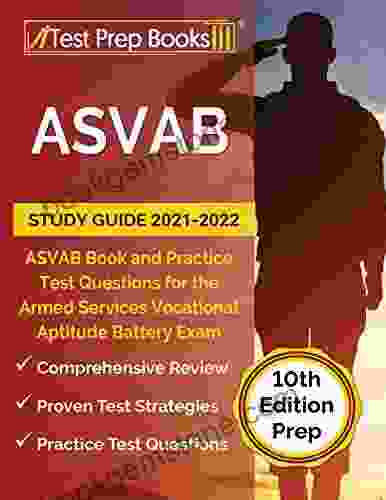
 Dan Bell
Dan BellUnlocking Success in Military Careers: A Comprehensive...
Embarking on a military career is a...
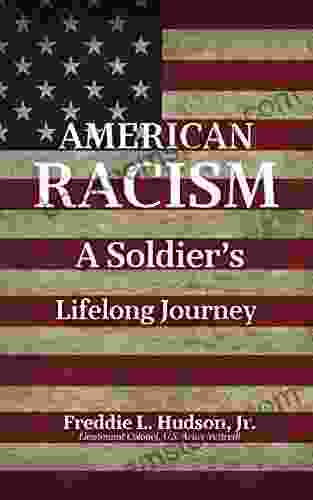
 Leslie Carter
Leslie CarterAn American Soldier's Lifelong Journey with Racism: From...
In the annals of...
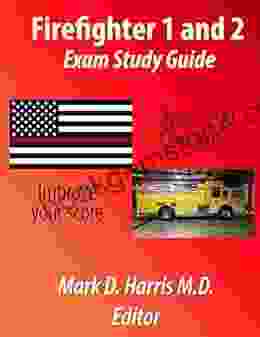
 Aldous Huxley
Aldous HuxleyFirefighters: Guardians of Our Communities and Exam Study...
Firefighters, the valiant sentinels of...
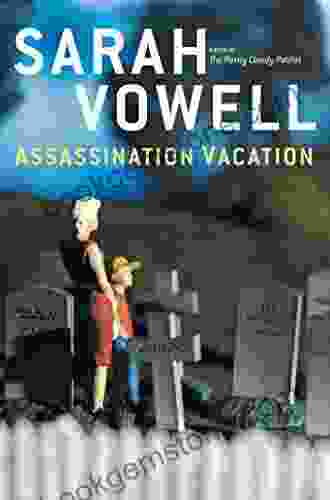
 Jason Reed
Jason ReedAn Unforgettable Literary Journey: Exploring...
: A Trip Down History's Darkest...
5 out of 5
| Language | : | English |
| File size | : | 3547 KB |
| Text-to-Speech | : | Enabled |
| Enhanced typesetting | : | Enabled |
| Word Wise | : | Enabled |
| Lending | : | Enabled |
| Print length | : | 37 pages |
| Screen Reader | : | Supported |


